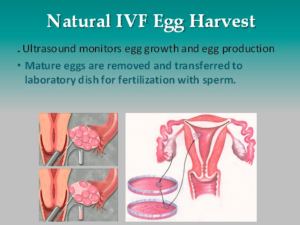PTSD, Anxiety and Trying to Conceive Again After Loss

A few months ago, my husband and I were given the all-clear to start trying to conceive (TTC) again. It was a relief to move forward from things being at a standstill. Finally, there was some forward momentum on our path to parenthood. However, almost as soon as I readied myself to begin the journey once more, I was overcome by bouts of anxiety and unexpected panic attacks. At first it felt misplaced, sudden and came seemingly from nowhere because I couldn’t pinpoint it to anything specific. Suddenly, ordinary situations felt overwhelmingly stressful. Suddenly, my body would shut down because I couldn’t breathe probably. It took me several weeks to recognize that what I was experiencing was actually some degree of post-traumatic stress disorder, most likely triggered when I got back to TTC. Needless to say, it’s been a frustrating few months and it has taken me great effort to calm my mind and not feel disempowered by what seems like yet another roadblock.
The Realities of PTSD & resultant Anxiety
What I’ve realized is that when you’ve experienced pregnancy loss more than once it becomes difficult to trust in your body’s ability to conceive and carry a healthy pregnancy to term. There is always the fear that it will happen again. Every twitch, sensation or dull ache becomes a trigger. In my case, this time around I had zero pain or symptoms of an ectopic pregnancy ahead of my first scan. I’d thought that my days of pregnancy loss were behind me because everything was fine, until it wasn’t. It felt as though I’d been lulled into a false sense of security before being slapped in the face with an unwelcome rude awakening. This has made it difficult to trust that I’m actually safe or healthy. I feel more at ease during a cycle where I know I’m not ‘trying’ as compared to a month when I know there is a possibility of being pregnant. It’s a catch 22, as I fear both not being able to get pregnant and the possibility of getting pregnant only to experience another loss, at the same time. I’ve struggled with intimacy for fear that if I get pregnant again too soon it will be another ectopic pregnancy. I know women who’ve had two consecutive ectopic pregnancies. I also know women who’ve gone on to quickly conceive and have a healthy pregnancy after their ectopic. But I guess that once you’ve experienced the worst case scenario the mind always goes to that place expecting that it will happen again, fearful of reliving the same trauma, only not being able to survive it all this time around. And so you remain in fight-or-flight mode, tense, anxious and mistrusting. To your post-trauma afflicted mind the world is a dangerous place and so the panic attacks start to take hold.
Psychotherapist and author, Joanna Flemons (LCSW, CPC), sheds some light on the topic in her book, Infertility and PTSD – The Uncharted Storm. Flemons says that “…infertility, ectopic pregnancy, recurrent pregnancy loss, stillbirth and other facets of this arduous journey can result in PTSD symptoms. Facing infertility in the present while regulating intrusive PTSD symptoms from past trauma and loss is an enormous challenge.” She goes further to say that: “The helplessness from the loss of control over your body is profound. The recurring loss can create the potential for new trauma and PTSD.”
Reading Flemons’ book helped put my own experiences into context and to understand that my anxiety was a natural reaction to the trauma and loss that I’ve experienced. In the initial stages, I reached out to women in one of the online ectopic pregnancy recovery support groups that I belong to, to get an idea of whether anyone else went through something similar. Several women were kind enough to respond and share their stories with me, many of whom shared that they felt the PSTD + resultant anxiety never fully goes away, as in their case it persisted even after having a healthy pregnancy. Some admitted that they didn’t realize that this was what was going on with them and were grateful not to feel alone in their struggle. This showed me how important it is to address what lies beneath the surface, reach out for emotional assistance when necessary, and to have a good support system to lean on. Once again, it also reinforced the importance of having these difficult discussions in community so that people feel less isolated.
Working through the Anxiety & Rebuilding Confidence in my Body
“During infertility and PTSD, it is important to develop a regular routine of activities that strengthen your mind to increase body health, while also reducing anxiety and stress. Mind-body practices can include meditation and acupuncture…These practices allow you to separate and disconnect from stimuli and outside stress that might otherwise vie for your attention.” ~ Joanna Flemons
It’s important to me to be in as grounded and healthy a space as possible when I am ready to conceive again. I am so conscious of the kind of energy I want to invite my baby in to. I’ve therefore given myself more time to understand my triggers and to work through them. Along with doing the ‘inner’ emotional work and releasing my physical tension, a key focus has been working at rebuilding my trust in my body, as well as my confidence in my ability to conceive and have a healthy full term pregnancy. With this in mind, here are some of the supportive self-care activities that I’ve been leaning into in recent months:
Mindfulness & Progressive Relaxation Therapy: Progressive relaxation therapy is a really simple way to relax the body and calm the mind. It involves tensing and relaxing all the muscles in your body one section at a time. Stress and anxiety cause our muscles to tighten and our bodies to tense. So, when you release tension or stress from your body and allow your muscles to relax completely, you start to shift out of that anxiety riddled fight or flight mode. Your mind eases and feels safer. I’ve taken to doing this in the evenings before bed, together with calming meditations and mindfulness exercises to put myself at ease. In addition, breathing exercises are another deep relaxation technique that works well in conjunction with progressive muscle relaxation. If you’ve had an anxiety attack then you probably know that struggling to breathe is one of the first symptoms you pick up on. The quickest way back to presence is to focus on your breath. The rhythm of your breath is calming. It draws your attention away from upsetting distractions and back into the moment. At any moment when you become self-aware during an overwhelming moment, breathe deeply and allow yourself to be. Other things that have also been helpful include going for massages, acupuncture and reflexology.
Rebuilding Body Confidence and Trust: What kinds of activities help you to reconnect with your body? Perhaps for you it’s something like yoga, dancing, Pilates, morning runs or walks in nature. It’s worth finding an activity that you can enjoy regularly to rebuild a positive relationship with your body. I started doing aerial yoga a year ago and it’s turned out to play a significant role in helping me find balance and healing through all that has happened this year. Not only is it a great form of physical outlet, but it also feeds me emotionally. I love the sense of freedom that it gives me. In each class I find myself achieving something I didn’t think I could at the outset. The more I strengthen my core and see myself grow from class to class, then the easier it becomes for me to trust my body and its many capabilities. Aerial yoga always fills me with joy. It’s definitely helped rebuild my body confidence and gives me the courage to keep challenging myself. I feel that these have been important lessons to carry across into my fertility journey, as it reminds me that I can rely on my body.
Mindset and Positive Affirmations: One of the ladies in the ectopic pregnancy support group reminded me of the difference that shifting your mindset in a positive direction can make. She pointed out that although I now have a 10% change of having another ectopic, there is also a 90% chance that the baby will implant in the right place and that I will have a healthy normal pregnancy next time round. Her comment put things into perspective for me. As mentioned, a lot of my stress and anxiety stems from the fear of that 10% chance of it happening again. So, her comment motivated me to focus on the other 90% instead. Each time I feel the anxiety of what could go wrong rising, I try to shift my attention to what could go right. I visualize a positive outcome and work with positive affirmations to focus on the beautiful possibilities of the pregnancy and motherhood I want to experience. It’s definitely been a great way to put my mind at ease.
Journaling & Art Therapy: Writing is my favorite form of self-expression, so journaling has been a natural part of my healing process. Journaling is a therapeutic reflection tool that allows you to identify what’s going on inside of you, notice your triggers and may even give you some insight into how to manage or heal the things that have been left unresolved. Together with journaling, I’ve also used art therapy as a self-examination process to release emotional and mental tension. In recent years, art therapy has proven to be an effective form of stress relief. The rise in popularity of adult coloring books is testament to just how effective a tool it is when it comes to calming the mind and relaxing through creative expression. It’s so therapeutic to just disconnect from everything and play around with watercolors or do some coloring. The colors I choose always tell a story about my emotions and unspoken thoughts. So it’s a fun way to just let it all out and brings a bit of lightheartedness to heavy emotions.
Have you struggled with PTSD or anxiety in the context of your fertility journey?
What has helped you to deal with it all?
Know that you are not alone. Don’t be too hard on yourself. Remind yourself that you are doing the best that you can, so be extra kind and gentle with yourself. Self-care is such an important part of the healing process. Sometimes healing is a slow process – one breath at a time, one step at a time, one day at a time. And most importantly, remember to reach out for help if you are feeling overwhelmed.
Ends



